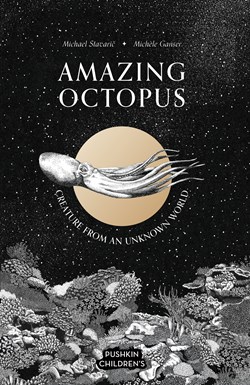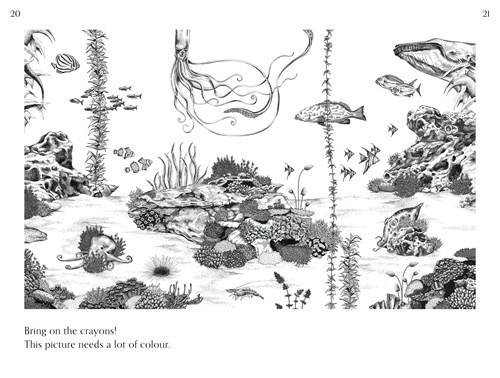
AMAZING OCTOPUS: Creature from an unknown world
MICHAEL STAVARIČ (tr. Oliver Latsch; illus. Michèle Ganser)
Pushkin Children's Books
$27.00 hardcover, available now
Rating: 5* of five
The Publisher Says: Dive beneath the waves and explore the amazing world of the octopus with this fact-filled book for middle grade readers who can’t get enough about marine animals!
What do ocean and space have in common? How did octopuses and humans evolve? What exactly are cephalopods - and why do they have such a funny name?
Octopuses are the oldest and most intelligent creatures on our planet, true aliens whose abilities amaze us. Michael Stavarič and Michèle Ganser have created a non-fiction book full of surprising twists and turns that offer much more than just imparting knowledge.
I RECEIVED A DRC FROM THE PUBLISHER VIA EDELWEISS+. THANK YOU.
My Review: I appear to be a middle-grade reader "who can’t get enough about marine animals". I loved reading this book, as ably translated by Oliver Latsch, and I reveled in the illustrations. They're done in an approachable, informative way:



These three were provided by Pushkin Children's Books to show just how astonishingly rich and fascinating all the illustrations are; Michèle Ganser is a major talent. Many more from this pen, please.
Since I'm a firm believer that the Tentacled Americans of all species are as close to alien inteligences as we're going to get for the moment, I was very happy with the choice to link them to outer space in this book.
Octopuses, as we know by now, are cephalopods—their legs, or rather their tentacles, are directly connected to their heads. This may give them a somewhat sack-like appearance to our eyes. Basically, they only consist of a huge head, two big eyes and eight arms, which are equipped with suckers on the underside. So it is not surprising that octopuses are also often called “aliens”.It's all like this, told as though your science teacher is a fun, funny storyteller with a lot of knowledge to make your learning painless.
The best part of this approach is that the astounding intelligence and real-life coolness of the cephalopd tribe gets hold of you quickly and, if I read this right, permanently. Your budding marine scientist will love the experience of reading this. It's not like most science books for this age group are...brightly colored and written down...so it'll appeal to the serious about science while not repelling the casually interested.
Parents will enjoy it, too, in large part because they'll recognize the Socratic teaching style of asking questions, of probing for the reader's existing knowledge. It's the best way I know of to get new facts to stick: Locate them in the child's existing nexus of information.
The physical book must be a delight to hold. The DRC is a delight to look at, a real visual feast. It marries the beautiful art with an effective, elegant page design. You generally won't go wrong with Pushkin Press's output. This book is no exception.
No comments:
Post a Comment
Note: Only a member of this blog may post a comment.